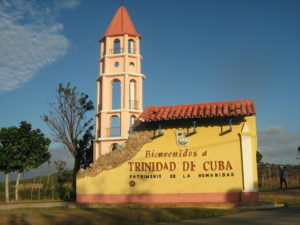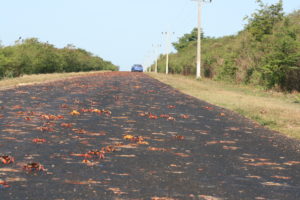![]() IT IS OPEN THE PATH OF TRANSITION “A LO CUBANO”.
IT IS OPEN THE PATH OF TRANSITION “A LO CUBANO”.
Fidel Castro has died. It was the news of Saturday and undoubtedly will be among the most relevant of the year.
The event arouses feelings and opinions found. Tears, joys, and hatreds as the result of a political activity of 65 years that in one way or another influenced millions of human beings from Africa, Middle East, Europe and the Americas. Certainly Fidel Castro made history. And it is known that the history is interpreted in multiple ways.
However the world does not stop for anything or anyone and in this dialectic of changes will continue to generate relevant and historical news. Perhaps in the next few months or years the relevant news related to Cuba will be what kind of changes emerged from the gradual changes that are conceived on the island today. Raúl Castro is positioned as champion of a process of change that aims to turn Cuba into a democratic, prosperous, sustainable and participatory society built from a Cuban “new socialism”. Fallacious rhetoric and gatopardista disqualified by the dire economic and social reality of my country. Political science affirms that to power it erodes the time.
Already the Cuban regime is not a monolith, is porous and is being corroded by the structural imbalances of the economy, generational changes and the loss of its supports ideological external, which are crucial problems that cannot be masked or deferred in time as did the late because the person that drives the changes from above has no competences of its predecessor.
For its part, the Cuban opposition is atomized in nearly 300 actors between games, projects, committees and platforms completely invisible to the Cuban and incompetent people to force changes to the interior of the country by lack of real leadership alternative to the regime and in keeping with the historical needs of the nation. And here is where again emerge Fidel last. With his death reveals itself with all harshness that in Cuba there is a deep crisis of leadership to address the changes that the nation claims.
Reality is dangerous for the country and a bit beyond because transitions tend to be of a highly complex processes since the changes born of changes are unpredictable. Therefore, the way of the reconstruction of the new post-socialist Cuban society consists of a long series of transitions which, in my opinion, in any case it should be chaotic.
Purity in any process of change involves a transition, a way to reach a goal. Thus, in Cuba is required to determine the forms of transition in order to establish the viability and sustainability of the process of change and for this reason has to consider what kind of transit assumes the given form, are the forces that push in favor of the change or reaction, in short, what should be the content of the draft country.
Be sustainable politically in the new context requires an opposition with more negotiating power, United in its diversity and around a transitional leadership capable of positioning the project for a country that is indisputably that responds to the historical needs of the Cuban nation because it fosters the peaceful towards an economic model and social transition from development with national characteristics where democracy and a transparent, accountable and participatory government, respect for human rights, fundamental freedoms and the rule of law to prevail.
Resuming, without Fidel Castro, Cuba better open to achieve a real transition “driven from above” and “forced from below”. The changes that have occurred in international relations contribute to that process.
That would be a Cuban transition and “A lo Cubano”.
Inclusive of a country that will be politically operative in the exercise of democracy. Then, there are no doubts, Cuba will again be world news by a significant historical event.
Fidel Castro? It will be in the place where it should be.
Agencies / El Mundo/ Enix Berrio Sardá / Internet Photos / Arnoldo Varona / TheCubanHistory.com
THE CUBAN HISTORY, HOLLYWOOD.
FOLLOW US ON TWITTER AND FACEBOOK. THECUBANHISTORY.COM
![]() SE ABRE EL CAMINO DE LA TRANSICIÓN “A LO CUBANO”.
SE ABRE EL CAMINO DE LA TRANSICIÓN “A LO CUBANO”.
Fidel Castro ha muerto. Fue la noticia del sábado y sin dudas estará entre las relevantes del año.
El suceso despierta sentimientos y opiniones encontradas. Llantos, alegrías y odios como resultado de una actividad política de 65 años que influyó de una manera u otra en millones de seres humanos de África, Oriente Próximo, Europa y las Américas. Ciertamente Fidel Castro hizo Historia. Y es sabido que la Historia se interpreta de múltiples maneras.
Sin embargo el mundo no se detiene por nada ni por nadie y en esa dialéctica de cambios seguirá generando noticias relevantes e históricas. Tal vez en los próximos meses o años la noticia relevante relacionada con Cuba será qué tipo de cambios emergieron de los cambios graduales que se gestan en la isla en la actualidad. Raúl Castro se posiciona como paladín de un proceso de cambios que persigue convertir a Cuba en una sociedad democrática, próspera, participativa y sostenible construidas desde un “nuevo socialismo cubano”. Retórica falaz y gatopardista descalificada por la calamitosa realidad económica y social de mi país.En ciencias políticas se afirma que al poder lo erosiona el tiempo.
Ya el régimen cubano no es monolito, es poroso y está siendo corroído por los desequilibrios estructurales de la economía, los cambios generacionales y la pérdida de sus apoyos ideológicas externas, los cuales son problemas cruciales que no pueden ser enmascarados ni postergados en el tiempo como hacía el difunto porque la persona que impulsa los cambios desde arriba no tiene las competencias de su antecesor.
Por su parte la Oposición cubana está atomizada en cerca de 300 actores entre partidos, proyectos, comités y plataformas totalmente invisibilizados ante el pueblo cubano e incompetentes para forzar cambios al interior del país por carencias de un verdadero liderazgo acorde a las necesidades históricas de la nación y alternativo al régimen.Y aquí es donde vuelve a emerger Fidel por última vez. Con su muerte se pone de manifiesto con toda crudeza que en Cuba hay una profunda crisis de liderazgo para direccionar los cambios que la nación reclama.
Realidad peligrosa para el país y un poco más allá porque las transiciones suelen ser procesos de una altísima complejidad debido a que los cambios nacidos de cambios son impredecibles. Es por ello que el camino de la reconstrucción de la nueva sociedad cubana postsocialista consta de una larga serie de transiciones que, en mi opinión, en ningún caso deben ser caóticas.
En puridad todo proceso de cambio implica una transición, un camino a seguir para alcanzar una meta. Así, en Cuba se requiere determinar las formas de transición a fin de establecer la viabilidad y sostenibilidad del proceso de cambio y para ello se ha de considerar qué clase de tránsito presupone la forma dada, cuáles son las fuerzas que pujan a favor del cambio o la reacción, en fin, cuáles deben ser los contenidos del proyecto de país.
Para hacerse sostenible políticamente en el nuevo contexto se requiere de una Oposición con más capacidad negociadora, unida en su diversidad y en torno a un liderazgo transicional capaz de posicionar el proyecto de País que indiscutiblemente es el que responde a las necesidades históricas de la nación cubana porque favorece la transición pacífica hacia un modelo económico y social de desarrollo con características nacionales, donde prevalezcan la democracia y un gobierno transparente, responsable y participativo, el respeto de los derechos humanos, las libertades fundamentales y el estado de derecho.
O sea, sin Fidel Castro, en Cuba se abren mejores condiciones para lograr una verdadera transición “impulsada desde arriba” y “forzada desde abajo”. Los cambios acaecidos en las relaciones internacionales favorecen ese proceso.
Eso sería una transición cubana y a la cubana.
Integradora de un pueblo que se hará políticamente operativo en el ejercicio de la democracia. Entonces, no me quedan dudas, Cuba volverá a ser noticia mundial por un hecho histórico relevante.
¿Fidel Castro? Estará en el lugar donde debe estar.
Agencies/ El Mundo/ Enix Berrio Sardá/ Internet Photos/ Arnoldo Varona/ TheCubanHistory.com
THE CUBAN HISTORY, HOLLYWOOD.








